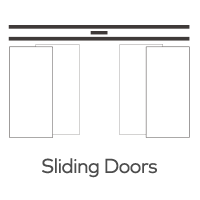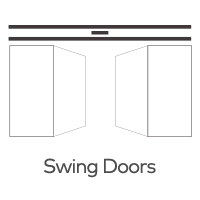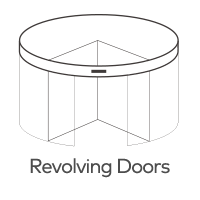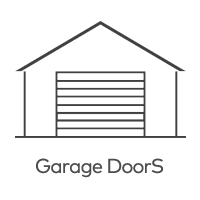The Failure Rate and Warranty Period of Automatic Door Sensors
Introduction
Automatic door sensors are a critical component in modern intelligent buildings and commercial spaces, responsible for the sensing and control functions that enable automatic door operation. As technology advances and people's demand for convenience increases, the application of automatic door sensors has become more widespread. However, in practical use, the failure rate and warranty period of automatic door sensors have become focal points of user concern. This article will explore in detail the failure rate and warranty period of automatic door sensors, helping users make better choices and use these sensors more effectively.
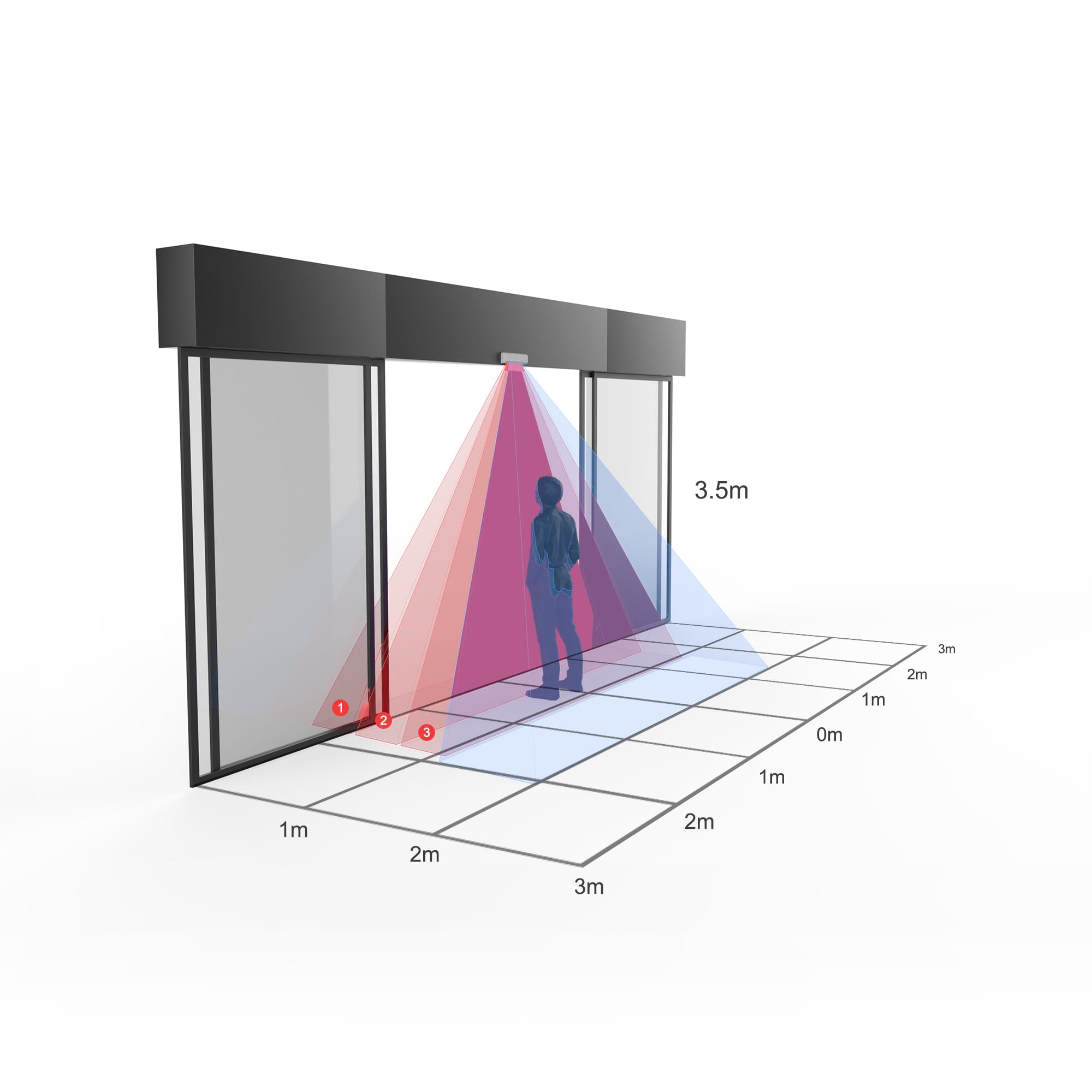
Working Principle of Automatic Door Sensors
Automatic door sensors primarily detect activities in front of the door using infrared sensing, microwave sensing, ultrasonic sensing, and other technologies. When the sensor detects the presence of a person or object, it sends a signal to the control system to drive the automatic door to open; when no activity is detected in the sensing area, the automatic door remains closed. Different types of sensors have different working principles and application scenarios:
1. Infrared Sensors: These work on the principle of infrared reflection. The sensor emits infrared rays and receives the reflected signal to determine the presence of an object.
2. Microwave Sensors: Utilizing the Doppler effect, these sensors emit microwave signals and receive the reflected signals, determining the movement of an object through frequency changes.
3. Ultrasonic Sensors: These sensors emit ultrasonic signals and receive the reflected signals to determine the presence and movement of objects.
Failure Rate of Automatic Door Sensors
1. Factors Affecting Failure Rate
The failure rate of automatic door sensors is influenced by various factors, including the following:
1. Product Quality: Different brands and models of sensors vary in manufacturing processes and material selection. High-quality sensors generally have a lower failure rate.
2. Installation Environment: The installation location and surrounding environment directly affect the sensor's performance. For example, environments that are humid, dusty, or have large temperature variations may increase the failure rate of sensors.
3. Usage Frequency: Sensors that are frequently used are more prone to wear and failure. Therefore, places with high usage frequency need to select more durable sensors.
4. Maintenance: Regular maintenance can effectively reduce the failure rate of sensors, while poor maintenance habits can increase the risk of failure.
2. Common Types of Failures
Common types of failures in automatic door sensors include the following:
1. Sensing Failure: The sensor fails to detect the presence of an object, causing the automatic door to not open or close properly.
2. Signal Interference: Other electronic devices in the surrounding environment may interfere with the sensor's signal, causing false alarms or missed detections.
3. Hardware Failure: Internal components of the sensor, such as the circuit board or sensor elements, may fail, affecting the sensor's normal operation.
4. Software Failure: Errors in the sensor's internal software system can cause the sensor to improperly process sensing signals.
3. Measures to Reduce Failure Rate
To reduce the failure rate of automatic door sensors, the following measures can be taken:
1. Choose High-Quality Products: Purchase sensors from reputable brands to ensure product quality and reliability.
2. Proper Installation: Avoid installing sensors in environments that are unfavorable, such as those that are hot, humid, or dusty, to ensure a good working environment for the sensors.
3. Regular Maintenance: Regularly clean and inspect the sensors to promptly address potential issues.
4. Technological Upgrades: Continuously update and upgrade sensor equipment to improve stability and durability with advancements in technology.
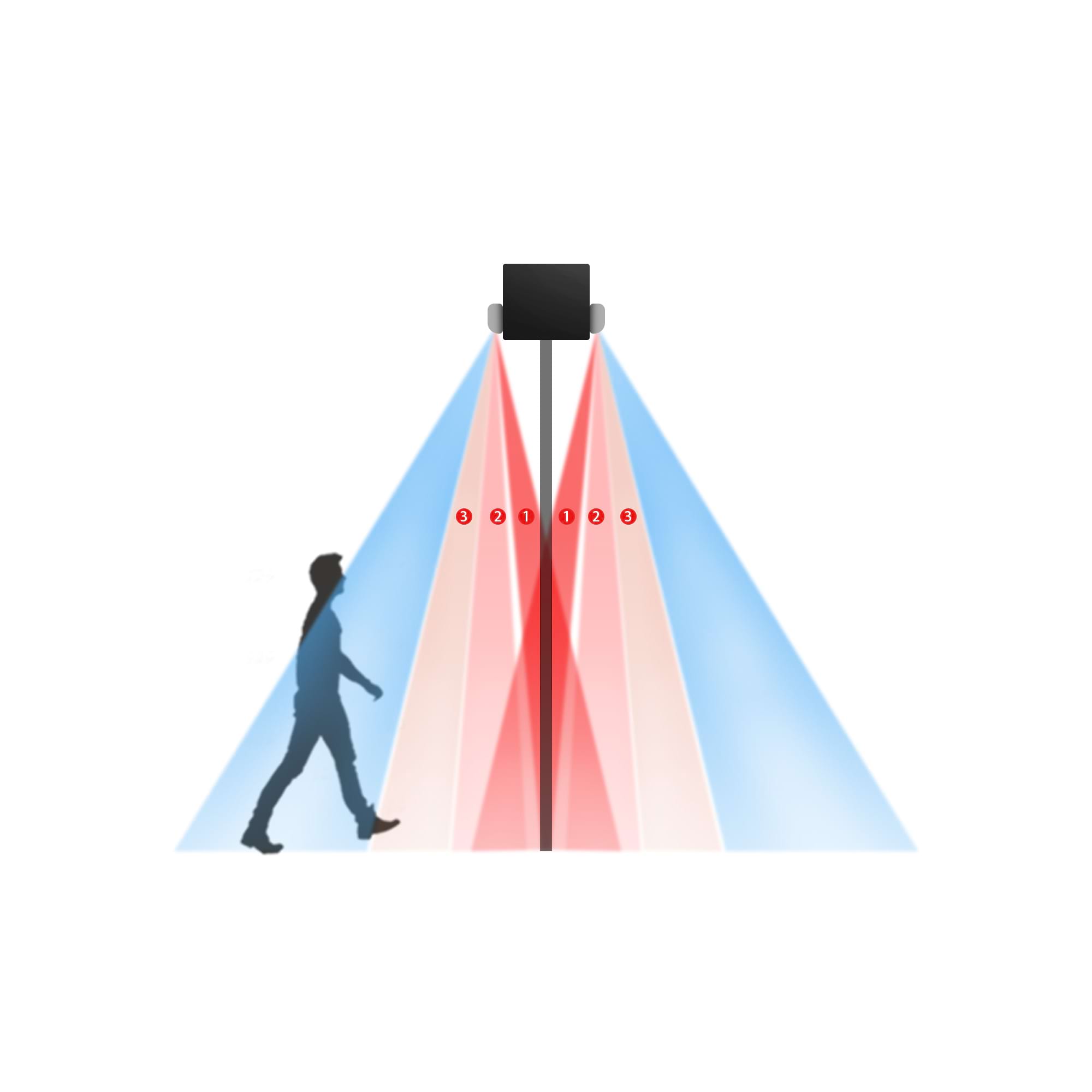
Warranty Period of Automatic Door Sensors
1. Importance of Warranty Period
The warranty period is a critical factor for users when purchasing automatic door sensors. It represents the manufacturer's commitment to product quality and serves as an important protection for user rights. A reasonable warranty period can reduce the economic losses and inconveniences caused by sensor failures during use.
2. Length of Warranty Period
The length of the warranty period for automatic door sensors depends on several factors:
1. Brand Reputation: Well-known brands usually offer longer warranty periods to demonstrate their confidence in product quality and their commitment to customers.
2. Product Positioning: High-end products generally have longer warranty periods because they use superior materials and technologies, whereas low-end products have relatively shorter warranty periods.
3. Market Competition: In highly competitive markets, manufacturers may extend the warranty period to attract customers.
3. Common Warranty Period Ranges
The warranty period for automatic door sensors in the market typically ranges from 1 to 3 years. The specific length of the warranty period varies depending on the brand and model. Here is an exploration of some common warranty period ranges:
1. 1-Year Warranty: This warranty period is usually found in low-end or ordinary brand sensors and is suitable for price-sensitive users.
2. 2-Year Warranty: A more common warranty period suitable for mid-range brands and products with a higher cost-performance ratio, providing basic quality assurance.
3. 3-Year and Above Warranty: High-end brands and high-quality products often offer a 3-year or longer warranty period, reflecting the manufacturer's confidence in product quality and high commitment to customers.
4. Services Provided During Warranty Period
Manufacturers typically offer the following services during the warranty period:
1. Free Repairs: Non-human damage faults that occur within the warranty period are repaired free of charge by the manufacturer.
2. Replacement Services: For sensors that cannot be repaired, the manufacturer provides free replacement services.
3. Technical Support: Free technical support is provided by the manufacturer to help users resolve installation and usage issues.
User Selection and Usage Recommendations
1. How to Choose the Right Automatic Door Sensor
Users should consider the following factors when selecting automatic door sensors:
1. Brand and Reputation: Choose products from well-known brands with a good reputation to reduce failure risks and obtain better after-sales service.
2. Length of Warranty Period: Choose products with a reasonable warranty period based on the usage environment and needs to gain longer quality assurance.
3. Technical Parameters: Pay attention to the sensor's sensing distance, angle, sensitivity, and other technical parameters to ensure the sensor meets actual usage requirements.
4. Price and Cost-Performance Ratio: Choose products with a high cost-performance ratio within the budget to ensure quality while saving costs.
2. Usage Considerations
Users should note the following considerations when using automatic door sensors:
1. Regular Inspections: Regularly inspect the sensor's working condition to promptly detect and address faults.
2. Keep Clean: Maintain the sensor's surface cleanliness to prevent dust and dirt from affecting sensing performance.
3. Avoid Interference: Avoid using electronic devices that may cause interference around the sensor to ensure its normal operation.
4. Follow Operating Procedures: Use the sensor according to the manufacturer's operating manual to avoid faults caused by incorrect operation.
Conclusion
As a critical component of automatic door systems, the failure rate and warranty period of automatic door sensors directly impact the user's experience and economic benefits. By choosing high-quality products, proper installation and usage, and regular maintenance, users can effectively reduce the failure rate of sensors. Meanwhile, a reasonable warranty period can provide users with longer quality assurance, reducing inconveniences and losses caused by faults.
In the future, with continuous technological advancements and increased market competition, the quality and service level of automatic door sensors will further improve, enabling users to enjoy more reliable and convenient automatic door solutions.


